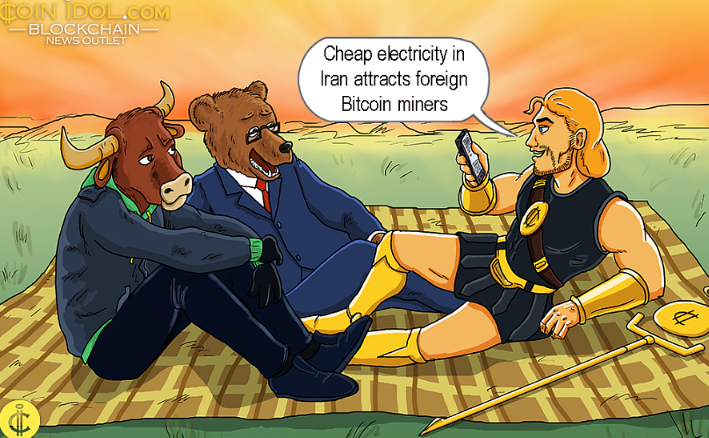The Iranian Parliament Commission on Economy has recently approved cryptocurrency mining in the country amid US sanctions.
Governor of the Central Bank of Iran (CBI), Abdolnaser Hemmati said that “a mechanism to mine digital coins were approved by the government’s economic commission and will later be put to the discussion at a Cabinet meeting.”
The Bitcoin craze has circulated around Iranian media, landing on front pages of newspapers and has been featured on television news shows across the country. Even some of the country’s top ayatollahs have been publicly discussing cryptocurrencies, according to the Associated Press.
Now , #Bitcoin was recognized and regulated in #Iran.
Congratulations to #Iranian #cryptocurrency .#blockchain #Crypto pic.twitter.com/cWARKqdQ7e— Mansour Ghandi (@mansour_ghandi) July 24, 2019
Some government officials are concerned that the energy-intense process of mining Bitcoin is violating Iran’s system of subsidized electricity.
Hemmati said, cryptocurrency miners shouldn’t run illegal operations but rather contribute to the country’s economy.
“We do believe that the cryptocurrency industry should be recognized as an official industry in Iran to let the country take advantage of its tax and customs revenues.”
Cryptocurrencies are an alternative to fiat money printed by sovereign governments around the world. Central banks have limited authority over Bitcoin and other digital currencies because the coins trade outside of the Society for Worldwide Interbank Financial Telecommunication, commonly known as SWIFT.
Mining coins in the country has become extremely popular thanks to government-subsidized energy; the cost per kilowatt-hour is some of the cheapest in the world. Miners avoid using Western rigs, which are too expensive, and opt for less expensive Chinese computers.
“It is clear that here has turned into a heaven for ‘miners, ‘” Mohammad Javad Azari Jahromi, Iran’s minister for information and communications technology, recently told AP in an interview. “The business of ‘mining’ is not forbidden in law, but the government and the Central Bank have ordered the Customs Bureau to ban the import of (mining machines) until new regulations are introduced.”
Ali Bakhshi, the head of the Iran Electrical Industry Syndicate, said the cost per kilowatt-hour for miners will be increased to 7 cents, a huge jump from the already going rate of a half-cent but still half the price versus Western energy markets.

Iran’s religious leaders have some concern that miners could try to circumvent paying extra for the electricity as well as using digital currency to hide or move money illicitly.
Tabnak News quoted three ayatollahs calling Bitcoin as either questionable or “haram,” suggesting it could be forbidden under Islam finance rules.
Jahromi said, religious leaders, have become more open to cryptocurrency after his staff advised them how it had value in the real economy.
“Some of our top clerics have issued fatwas that say Bitcoin is money without a reserve, that it is rejected by Islamic and cybercurrencies are haram,” Jahromi said. “When we explain to them, this is not a currency but an asset, they change their mind.”
Iran has been developing a rial-backed national cryptocurrency, able to avoid US economic sanctions.
A new study from the foundation for Defense of Democracies (FDD) insists cryptocurrencies are being used by Iran to bypass the America’s geopolitical supremacy.
The FDD study suggests that a rial-backed national cryptocurrency, particularly one tied to oil, could make it more difficult for Washington to enforce sanctions.
The world is evolving, shown through the adoption of cryptocurrencies in Iran, can circumnavigate Washington and the American financial sector who hold dominance in global finance. It could take at least a decade, but Iran is certainly laying the building blocks to operate its economy outside US control.






